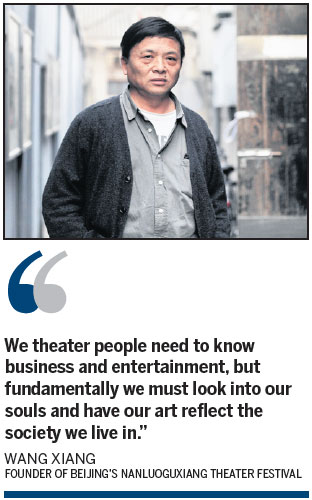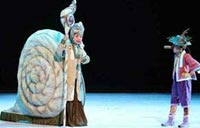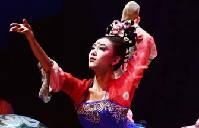Small stage, big role
By Raymond Zhou ( China Daily ) Updated: 2014-02-14 07:20:35
| Pinocchio sings Peking Opera |
| Chinese classic dance drama hits London stage |
Overall, word from the first symposium of small-theater professionals, held in 9 Theater known for its rich offerings of small plays, points to a dichotomy between those with projects and those with capital. One complains about insufficient funding and the other about a lack of quality projects. And those responsible for marketing and ticket sales are under constant pressures of finding more ticket buyers.
If a project is difficult to evaluate before it meets the audience, a theater's dark days should be easy to calculate. Ideas were floated at the small-theater powwows that aggregate all theaters' dates for availability, plus all technical information, and make the continuously updated statistics accessible to all producers. That may reduce waste in capacity by matching supply with demand.
Another goal is to strive for nonprofit status for these private entities, which will narrow the gap between State-run and private companies and help level the playing field.
"A smart government should join hands with artists to fight against over-commercialization of the art form. As it stands, commerce and the lowest form of art have become partners," laments Wang.
He could be referring to Mahua FunAge, a show similar to Beach Blanket Babylon, the longest-running musical revue in the United States. Undoubtedly the biggest hit on the Beijing stage in terms of money-making potential, it has spawned several versions that are now staged simultaneously in four venues across the city. The show, presented in big houses, can be seen as a culmination of Chinese-style comedy clubs. In China, small theater has an inadvertent predecessor in standup and skit comedy, the forms now dominated by Guo Degang and Zhao Benshan.
For a while, this kind of slapstick comedy flourished in small theaters as a variant of Western-style plays, or ones with Chinese characteristics so to speak. But operators like Wang disdain such "dumbing down" of this theatrical art, which many perceive as experimental and cool.
"We theater people need to know business and entertainment, but fundamentally we must look into our souls and have our art reflect the society we live in," Wang says.
|
|
|
|
|
|
|
|























 Raymond Zhou:
Raymond Zhou: Pauline D Loh:
Pauline D Loh: Hot Pot
Hot Pot Eco China
Eco China China Dream
China Dream China Face
China Face





